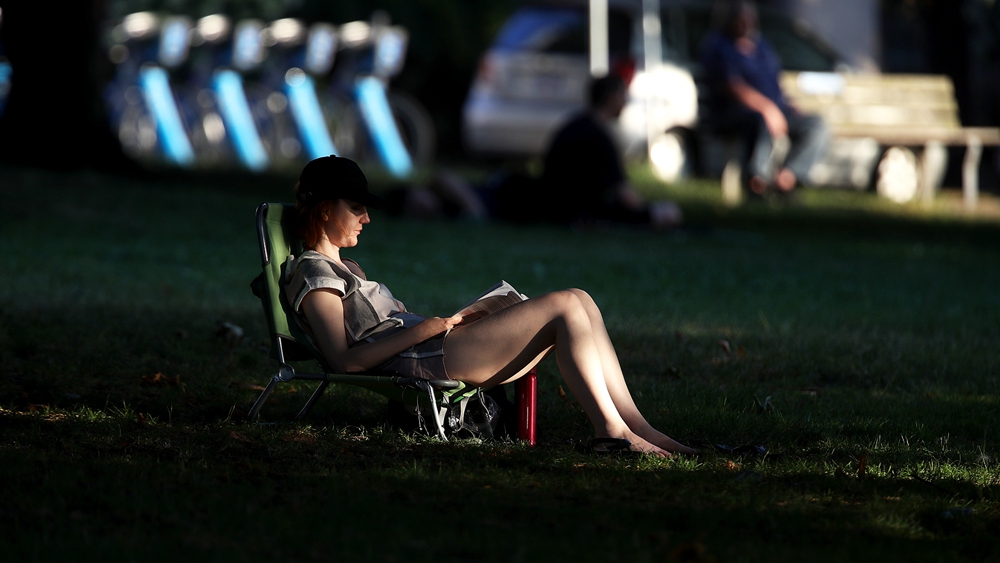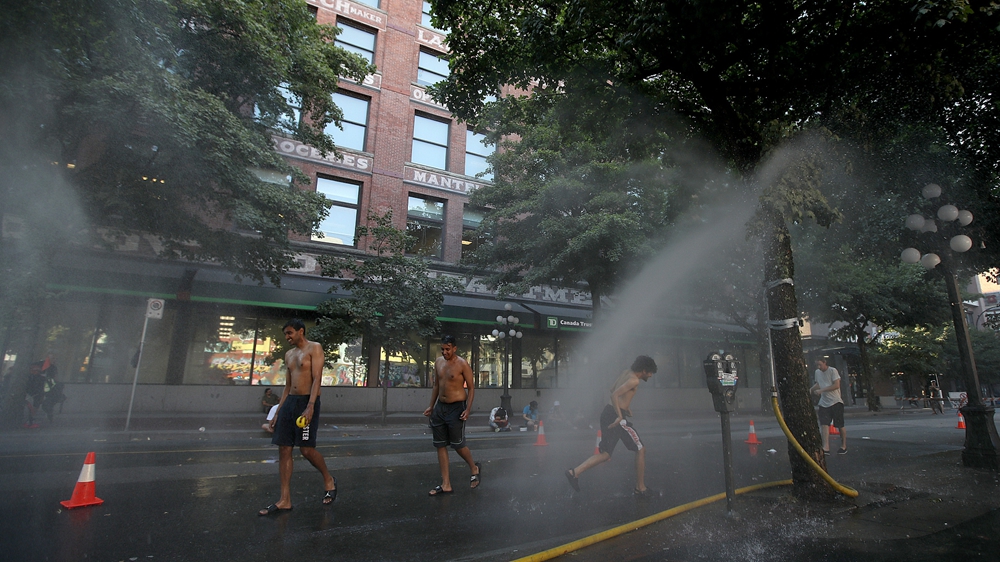
Children play in a fountain pool during a heat wave in Portland, Oregon, U.S., June 26, 2021. /CFP
Children play in a fountain pool during a heat wave in Portland, Oregon, U.S., June 26, 2021. /CFP
At least 69 people in Canada's Vancouver area have died in a record-smashing heat wave engulfing the west of the country and the U.S. Pacific Northwest, police said Tuesday.
Most of the dead in the Vancouver suburbs of Burnaby and Surrey over the past 24 hours were elderly or people with underlying health conditions, the Royal Canadian Mounted Police (RCMP) said.
Other local municipalities have said they too have responded to many sudden death calls since Monday, but have yet to release tolls.
"Although still under investigation, heat is believed to be a contributing factor in the majority of the deaths," RCMP Corporal Michael Kalanj said.
Climate change is causing record-setting temperatures to become more frequent. Globally, the decade to 2019 was the hottest recorded, and the five hottest years have all occurred within the last five years.
The scorching heat stretching from the U.S. state of Oregon to Canada's Arctic territories has been blamed on a high-pressure ridge trapping warm air in the region.

A resident reads in the shade in Alexandra Park during a heat wave in Vancouver, British Columbia, Canada, June 28, 2021. /CFP
A resident reads in the shade in Alexandra Park during a heat wave in Vancouver, British Columbia, Canada, June 28, 2021. /CFP
On Monday, Canada set a new all-time high temperature record of 118 degrees Fahrenheit (47.9 degrees Celsius) in Lytton in British Columbia, about 155 miles (250 kilometers) east of Vancouver.
Temperatures in the U.S. Pacific Northwest cities of Portland, Oregon, and Seattle, Washington, reached levels not seen since record-keeping began in the 1940s: 115 degrees Fahrenheit (46.1 degrees Celsius) in Portland and 108 degrees Fahrenheit (42.2 degrees Celsius) in Seattle, according to the National Weather Service.
Vancouver on the Pacific coast has for several days recorded temperatures above 86 Fahrenheit (or almost 20 degrees above seasonal norms).
"We are in the midst of the hottest week British Columbians have ever experienced, and there are consequences to that, disastrous consequences for families and for communities," said British Columbia Premier John Horgan.
"How we get through this extraordinary time is by hanging together," he said.

A temporary misting station on Abbott Street during a heat wave in Vancouver, British Columbia, Canada, June 28, 2021. /CFP
A temporary misting station on Abbott Street during a heat wave in Vancouver, British Columbia, Canada, June 28, 2021. /CFP
Environment Canada has issued alerts for British Columbia, Alberta, and parts of Saskatchewan, Manitoba, Yukon and the Northwest Territories, saying the "prolonged, dangerous and historic heat wave will persist through this week."
The U.S. National Weather Service issued a similar warning, urging people to "stay in air-conditioned buildings, avoid strenuous outdoor activities, drink plenty of water, and check on family members/neighbors."
The heat wave has forced schools and COVID-19 vaccination centers to close in the Vancouver area, while officials set up temporary water fountains and misting stations on street corners.
Cities across the western United States and Canada opened emergency cooling centers and outreach workers handed out bottles of water and hats.
"Dubai would be cooler than what we're seeing now," David Phillips, a senior climatologist for Environment Canada, said on Monday.
Source(s): Reuters

